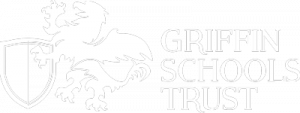>> RELIGIOUS EDUCATION
“Religions are different roads converging to the same point. What does it matter that we take different roads as long as we reach the same goal? In reality, there are as many different religions as there are individuals.”
Gandhi
Intent
Our intent for Religious Education at Lordswood School is to provide our pupils with the opportunities to explore a wide range of religious beliefs, values and celebrations. In preparedness for their adult lives we want the children to embrace the multi-cultural society in which they live and to understand that they, as individuals, are also an integral part of that society. By encouraging the children to make comparisons, ask questions and freely express their thoughts and ideas, we aim to promote a deeper understanding of the importance that faith and religion holds for both individuals and sociocultural groups. It is also hoped that, through the high standards of teaching and stimulating learning experiences we have to offer, we can go some way to “demystifying” the unknown and clarifying preconceived notions and misconceptions. As a whole school we endorse the view that there is no place for prejudice in contemporary society, and that every individual is as important as the next, regardless of race, colour or creed. By following a value-based Religious Education curriculum, we aim to inspire confidence and resilience in our pupils in readiness for their future lives as effective citizens. We have a clear understanding of the importance of providing a positive, accepting and fully inclusive environment and, together with the application of the school’s value-based curriculum, we want to ensure that our pupils are able to view different religions and faiths with tolerance, and respect, and with a greater understanding as to why certain celebrations and customs play an important role in religious practices.
Implementation
As a “thinking school” we actively encourage children to ask, what can at times be, difficult or awkward questions, and the subject of Religious Education provides an ideal opportunity for the children to do so. Metacognitive learning can prove to be an excellent mechanism in this particular field and, by urging the children to reflect on and evaluate their own thinking through questioning and comparisons, they acquire a deeper understanding of the subject as well as their own learning processes.
We offer a range of engaging and stimulating learning experiences to all year including:
- Whole school and phase group assemblies
- World Religion Day celebration with competitions and activities across the whole school
- Whole school celebration of Christian festivals such as Harvest Festival, Easter and Christmas
- Whole school celebration of other religious festivals (e.g. Diwali and Chanukah)
- Visits to places of worship (e.g. Mosques, Synagogues, Churches)
- Visits from the Salvation Army and Family Trust
- Whole school yearly support of many charity organisations as well as food banks
- Displays of religious artefacts
- Interactive displays encouraging child voice and suggesting subject related careers
- Close links to the local church in order to promote support in the community
As a school we understand the importance of providing positive feedback in relation to the work children undertake and, in all subject areas, we celebrate the children’s work in a number of ways. One piece of Wow Work is selected from each class and is posted on the school website and Facebook each Friday. Children are given an opportunity to reflect on their own work as well as that of their peers, and drawings and written work are displayed on the Religious Education display board and within the work portfolio.
The progress that each child makes is closely monitored at the end of each unit taught in the subject area and, based on teacher judgment and child self-assessment, is recorded on Target Tracker. A crucial part of teaching is the ability to a demonstrate an understanding of how children have progressed in their learning over a period of time, and pupil voice has proved to be a valuable tool to this effect. In the subject of Religious Education, we have implemented a scheme whereby students will be given the opportunity to discuss their subject knowledge in relation to specific key areas with the subject lead. The impact of the Religious Education curriculum is reviewed through child voice, including the utilisation of the school’s Pupil Parliament and drive team. Regular staff meetings provide opportunities for reflection and CPD ensures teachers are equipped with the knowledge and skills to deliver the curriculum. Week in learning evidences the coverage and skills of the curriculum.
Impact
The children at Lordswood School thrive in an environment where differences in religion, faith and belief are embraced. Due to the wide range of activities provided throughout all year groups across the school, the children can relate personally to specific experiences. Pupils develop a keen interest in the subject area based on their own personal experiences, and relish the opportunity to ask questions and express opinions. Through actively being encouraged to think inquisitively, the children gain a deeper understanding of what a multicultural society has to offer us and what we, in turn, have to offer to society as individuals. Through shared whole school experiences, whether these consist of a range of cultural celebrations, or the use of metacognition as a learning tool, the children enjoy participating in Religious Educational studies. Previously unknown facts and misconceptions are demystified, and the children’s minds are open to the concept of a society that continues to change, and acknowledge the value of its fellow human beings. Children gain an understanding of the multi-cultural society in which they live.



